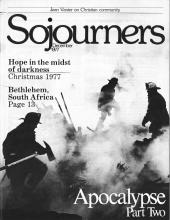There is a classical approach to theology and ethics which involves faithfulness to the gospel of Jesus Christ authoritatively attested to in the scriptures. According to this approach the Word of God, incarnate and written, is exalted high over the rebellious thoughts and tendencies of humankind. It professes commitment to the undiluted biblical framework of revelation and redemption. This classical approach to theology accepts divine revelation as a given—canonically attested and not to be adjusted, accommodated, or revised in the light of what the hearers may require.
Over against the classical approach stands the liberal experiment in theology and ethics. Liberal theologians, like the classical ones, are also eager to maintain a clear connection with the ancient and biblical symbols, but they are deeply committed at the same time to what modern people in a modern world believe. In the liberal experiment, therefore, modernity is not sacrificed to Christianity, nor Christianity to modernity, but rather an attempt is made to synthesize the two standpoints. In practice this usually means that the full biblical framework must undergo fairly extensive dismantling and demythologizing to bring it into line with modern thought. Scripture may be criticized and its concepts revised in the light of what the world requires. In the name of relevance, the world is allowed to write the church's agenda.
Because they can see no justification for presuming that modern people's understanding of reality is on a level with or even above God's revealed Word, and therefore reject the supposed necessity of demythologizing, evangelicals stand firmly in the classical tradition. They see it as simply a matter of being faithful stewards of the gospel and guarding the precious deposit committed to us in scripture. Between the two types of theology there is clearly a significant issue of principle.
Read the Full Article

